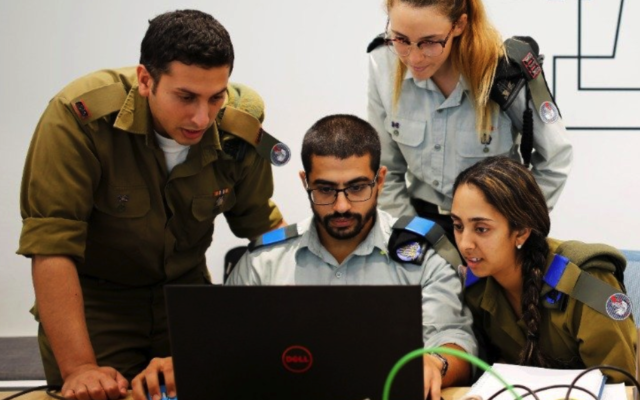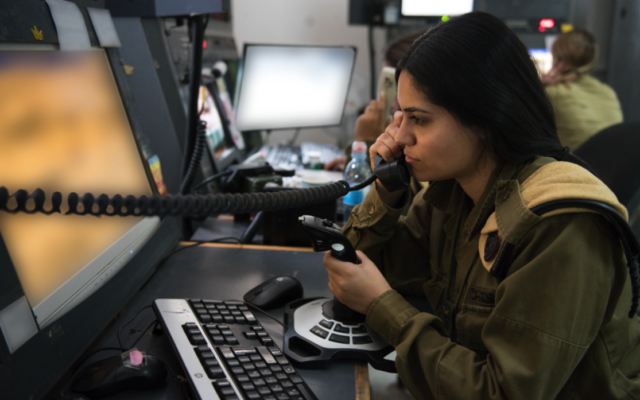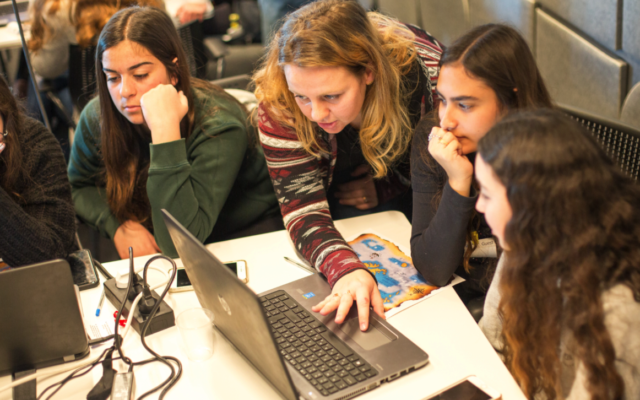Zalik Foundation Grant for IDF Cyber Security
The gift will support an Israel Ministry of Defense program to expand the role of women in cyber warfare.
The Atlanta-based Zalik Family Foundation, founded by David and Helen Zalik, has announced a $1 million gift to support advanced computer technology training for young women in Israel’s middle and high schools.
The gift, to be spread out over the next five years, will support an Israel Ministry of Defense program called “Mamriot,” Hebrew for “taking off.” As that word would imply, the accelerated pace of learning is part of a new effort to expand the role of women in cyber warfare.
Israel’s Ministry of Defense has appropriated $4.8 million for the initiative and the Friends of the Israel Defense Forces (FIDF) will add another $3.4 million. Part of this funding comes from the Zalik Foundation, which, in a statement it released, wrote:
“The need for more talent in the tech sector in Israel is clear and we are inspired by the FIDF’s support of a program that equips young women, many from Israel’s geographic periphery, with education and tools to make valuable contributions.”

Previous attempts to provide cyber training for school-aged girls produced disappointing results, mainly — according to the IDF — because it was provided in a coed environment in which young women often felt they were competing against young men. That forced the IDF to redesign the program, said Seth Baron, who runs the FIDF regional office in Atlanta.
“What we saw in a coed situation was the dropout rate among women was twice that of the young men. And, through a number of pilot programs in the IDF and Ministry of Defense, doing their due diligence, realized that we could have much better success with a program geared specifically towards young ladies.”
Last year, a pilot program showed that when young women were taught separately, they were just as successful with the program of study and remained with it just as long as young men did. In light of these positive results, Israel’s government redoubled its efforts to provide cyber training for young women, who are required to serve at least two years in the IDF, alongside men.
The national director of the FIDF, retired IDF Major General Nadav Padan, pointed out that the Zalik Foundation’s gift will go a long way toward accomplishing a number of objectives.

“Empowering teen girls with specialized tech education has multiple benefits in Israel,” he said. “It provides an unprecedented opportunity to an audience who might not have otherwise had it, utilizes untapped potential from Israel’s periphery and supports the need for cyber specialists in elite technology units of the IDF.”
Israel is considered to have one of the most ambitious and successful cyber warfare units in the world. In 2016, former IDF Chief of General Staff Lt.-Gen. Gadi Eizenkot established the Joint Cyber Defense Division as a separate component of the armed forces, equal in its responsibilities to the Army, Navy and Air Force. Its mission is to connect the nation’s computer-based defense technology to every unit of the IDF.
The “Mamriot” program is one way of developing what has been described as a feeder network to prepare Israel’s young people to serve in elite cyber warfare forces such as Unit 8200, the largest single component of Israel’s military, comparable to America’s National Security Agency.
According to the FIDF’s Baron, women make up only about 15 percent of the cyber units in the IDF. The goal of the new program is not only to create a pipeline that can staff these units but also to enable female soldiers to continue their careers in Israel’s burgeoning high-tech industries.
“Once they get out of service, they have a skill set that they would not have otherwise had,” he said. “And so, it takes care of a goal of increasing participation of young women within the IDF. And it also helps increase the general working society within a high-tech and cyber security environment in the State of Israel. So it’s really a great educational component all the way through military service and even afterwards.”
Historically, women have played an important role in the FIDF here. The current Southeast chairperson is a woman and Helen Zelik was not only instrumental in facilitating the $1 million grant but in 2014 also served as a co-chair of the organization’s annual fundraising event in Atlanta.
The FIDF, a major source of grants for initiatives in Israel, is projected to raise $92 million nationally this year. It’s annual fundraiser is scheduled for May 16.




comments